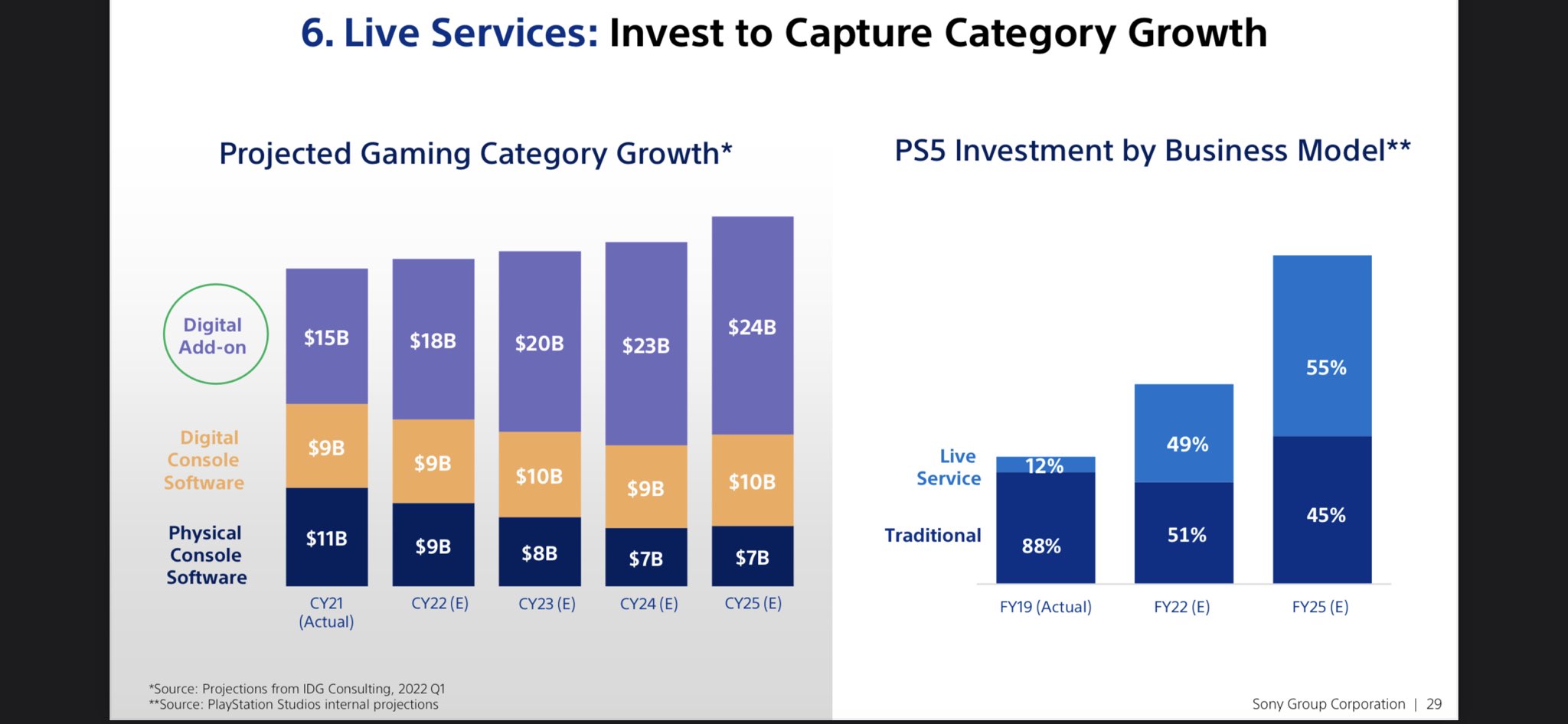True, but it suggests that GAAS gamers have always been interested in other games. It completely destroys the narrative that gamers are "locked" to their preferred GAAS game. In reality, GAAS gamers prefer playing their one or two GAAS games but we all want a better game to come out and lure us away.
The thing no one has access to is the hit rate of GAAS titles over the last 20 years. Lots of talk about market saturation but no one has any idea what the success rates were pre saturation and post saturation.
All gamers at some point get tired of whatever game they are playing and move to another one. The point of the very successful GaaS is that key keep the player there for longer with post launch stuff, which for devs/publishers means more changes of getting more money per player.
But yes, even in the most successful ones, at some point the player gets tired and moves on. It may be after playing the first day, it may be after a few months, it may be after some years.
Players -GaaS players too- often play other games, as could be newer GaaS, and if they prefer them they move there. In some cases they prefer the older game and go back to the older game. Which is more likely in cases where the player already invested a lot of time (and sometimes money) on it.
Nowadays there are more games (that includes GaaS too) being very successful than ever, because the amount of games released increases every year.
As always happened, most games aren't greenlighted to enter production, get cancelled or aren't profitable. A minority end released and being successful. Only a few became hits and a tiny portion become superhits.
Some of the teams have to shut down and created different teams or sell to somebody else to join forces and continue alive. And try again. The successful ones continue forward and get competition from newer teams. And the circle continues.
Some genres or niches get saturated, and once devs and publishers realize there's no place for them they move on to try something else, so the competition decreases in that area.
As of now GaaS userbase, revenue and game software revenue % continues growing, so it's the biggest cow to milk and more players keep trying there.
The gaming market keeps regulating itself and keeps evolving and changing every few years as it did for 50 years.
The advantage GAAS has over traditional SP games is that it thrives on innovation whereas traditional SP games do not. GAAS needs to find new niches to carve out a new audience. Traditional SP can keep releasing the same game with slightly better production values because those games have the shelf life of a fruit fly.
I wouldn't say it drives innovation.
GaaS just means that instead of being designed as a product that they release and forget about it, they are designed as service that will evolve after launch with game updates and new content as much as it makes sense according to its metrics.
So it has two main advantages:
1) If it doesn't work, they can shut it down shortly after releasing a let's say 'minimum viable product', which means they shut it down before having spent the total amount of money that required the full vision of the project. For companies is important to fail fast, reducing the loses that a failure can generate.
2) If it works, they can keep adding content for years, to achieve a potential amount of money per user way higher than the one they get from non-GaaS titles. Because if a player let's say keeps playing a game for 3 years he may spend there the money he could have spent in other let's say 3, 6 or 10 other games he could have played in that period.



:format(webp)/cdn.vox-cdn.com/uploads/chorus_asset/file/24677519/Screenshot_2023_05_23_at_5.28.54_PM.png)










